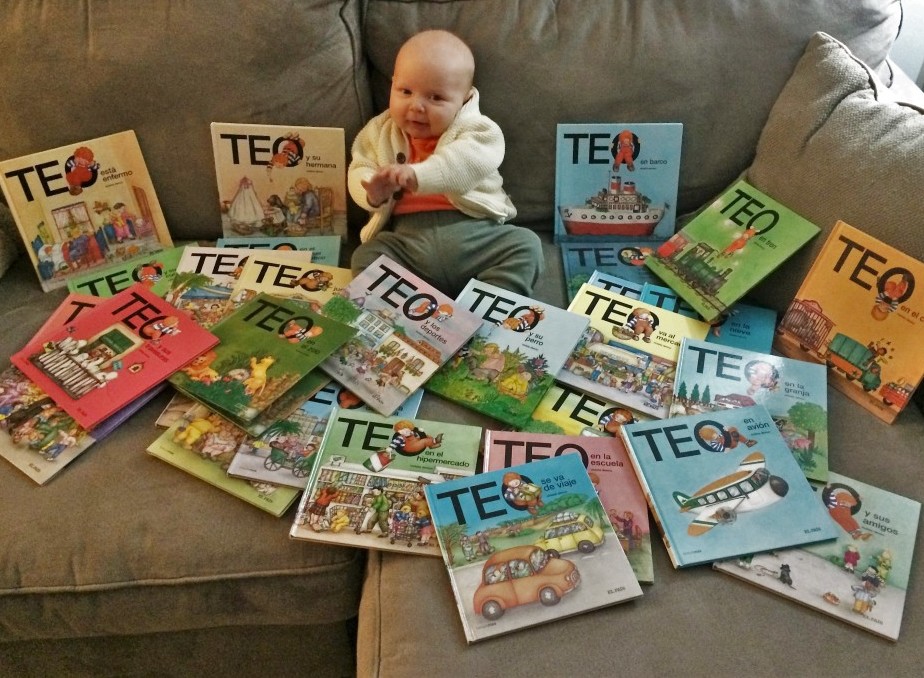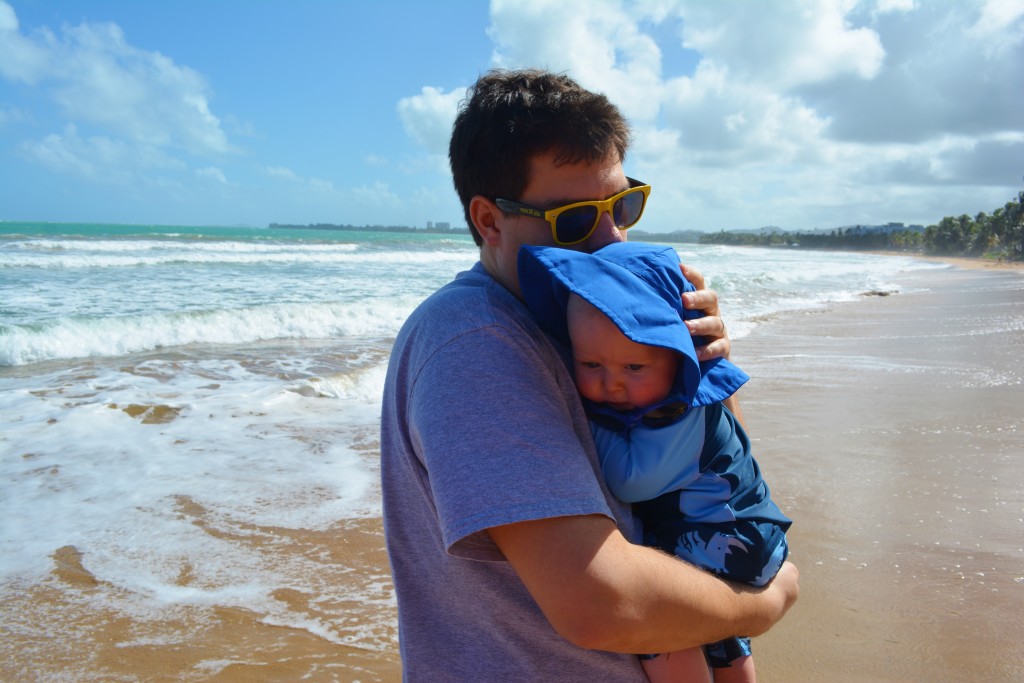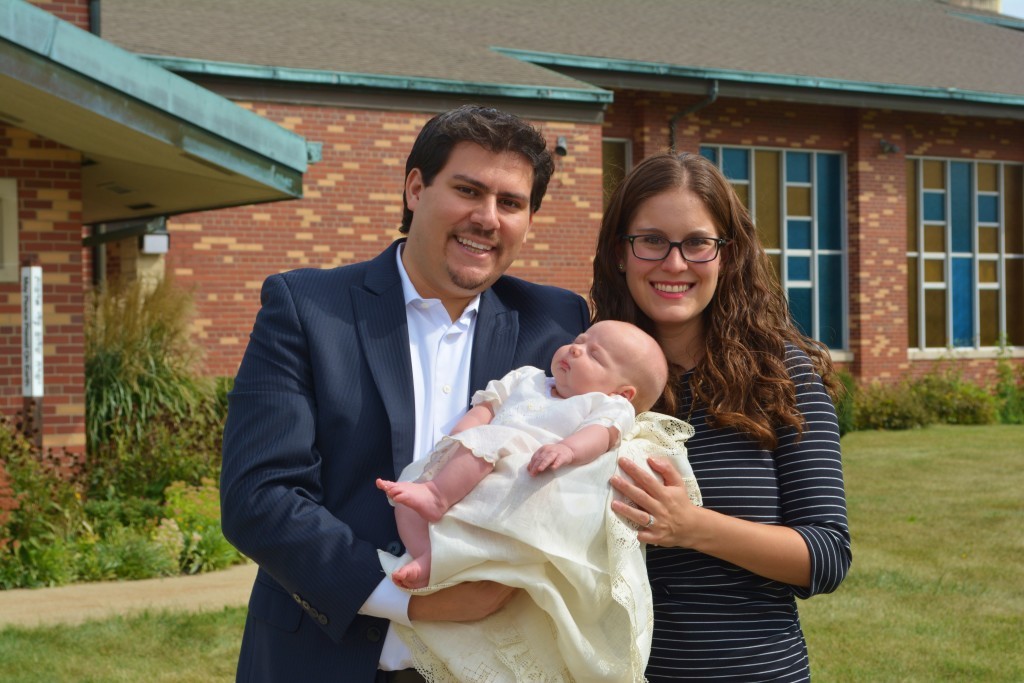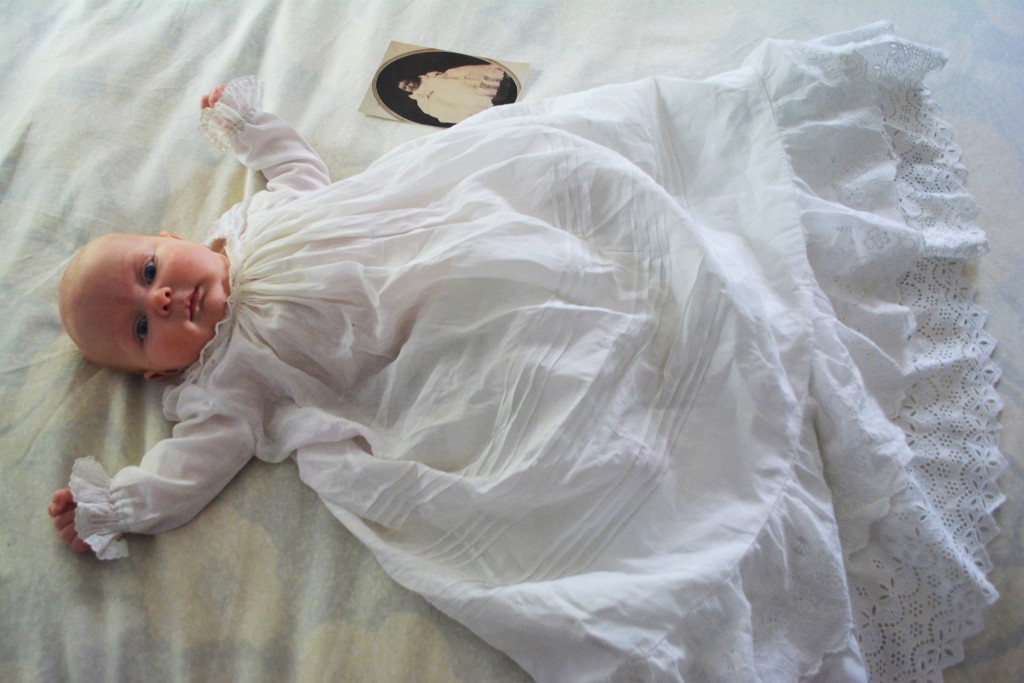Early in our marriage, having a husband who was Puerto Rican marginally impacted my life. It meant yearly trips to the Island to visit family. It meant being asked by new acquaintances, upon hearing my last name, “Oh, you speak Spanish?” (sadly, no…or should I say, ‘not yet’) and finding myself automatically subscribed to Latina magazine.
Having a child accelerates things. I want to incorporate Puerto Rican culture into our everyday lives so that our son will grow up connected to that part of his heritage. Here in Michigan, geographically and culturally far removed from Island life, I worry that it won’t happen organically. As the non-Puerto Rican parent, it takes effort. It feels like another ball to juggle in trying to be a “good enough” mom. Is he developing healthy eating habits? Does he have the appropriate amount of stimulation and socialization? Is he Puerto Rican enough?
All families, even those who may not have striking cultural differences, find their own path, blending a mix of traditions and creating a new, unique story for themselves and their children. I’m only 8 months in, and I’m no expert, but I can speak to my experience so far.
Here are some factors that are important to my family in raising our bi-cultural baby:
What’s in a name?
I already loved the name Theodore, but when I learned the Spanish pronunciation “Teodoro” sounds like “I love you” (“te adoro”), it was game over. Bonus points for the adorable Spanish nickname “Teo.” We chose a middle name that is meaningful in both families and opted for the Spanish version, Luis. Hyphenating last names is traditional in many Hispanic cultures, and also a way to distinguish oneself from the seemingly-infinite Rodriguezes of the world. I’ll admit, I was hesitant: Puerto Rican and German names don’t naturally blend well. But now I love that my son carries a piece of my family, too.
Exposure to language
We use Facetime and speakerphone with his abuelos. We listen to Pandora stations of popular Spanish artists. (Even the writing of this post was interrupted by an impromptu and urgent dance party to 123 Andres). I speak Spanish with Theodore to the best of my ability, and I’m using the Duolingo app to improve my limited skills. I know the most effective way to raise a bilingual baby is for each parent to speak exclusively in one language, but my husband feels, and I agree, that his speaking in only Spanish would hinder our family conversations. So we’re doing it our way.
We have loads of Spanish books and tapes (a clutch mom-to-mom sale find), including versions of Green Eggs and Ham, The Magic School Bus, and Make Way for Ducklings. This often leads to me googling “how to pronounce ___” but we struggle through, and we learn together. Coincidentally, there’s even a series of Spanish books about a boy named Teo.

Leaving on a jet plane
When Theodore was four months old, we flew to Puerto Rico for Christmas to introduce him to his extended family. He is the first of his generation of Rodriguezes, and to see the pride on his great-grandparents’ faces while they held him was priceless. We walked the same beaches my husband walked as a child. Theodore certainly won’t remember these first trips at such a young age, but my hope is that they set a foundation for a lifelong appreciation for all things boricuan. Besides, these memories are special for us adults who do remember.

Creating blended traditions
My husband and I are both Catholic, so conveniently, our holidays overlap. However, my husband grew up celebrating Three Kings Day in January; my family always celebrated St. Nicholas’ feast day in early December. Lucky for our son, he’ll reap the benefits of both! Another example is Theodore’s baptism. We chose to use two gowns for the ceremony: one was a traditional, hand-embroidered Puerto Rican estopilla, the second a baptismal gown that has been used in my family since my great-grandmother was baptized in 1902.


Coming soon…food!
Our son is a little young for flavorful rice and beans, so we haven’t started him on Puerto Rican food yet. But oh, the food! Pork, yucca, plantains, guava, fried everything. We are looking forward to incorporating more of this into Theo’s life soon.
Although I joke that I’m “Puerto Rican by marriage,” part of me feels a loss that half of my son’s culture is not actually mine, that half of him is separate from me. We share a last name, but his “Rodriguez” carries more weight than mine. I worry that my half of his ancestry will be dropped over time. After all, his paternal grandparents who lived in Puerto Rico until the 1980’s seem to trump his great-great-great-great-grandparents who emigrated from Germany in the 1700’s.
It must be normal, this desire to feel connected to our children’s experiences and the resulting fear that they are going somewhere we can’t follow. Besides, isn’t it the heart (and challenge) of parenting? Accepting and loving our children for whatever their traits and interests might be, even when they differ from ours. Encouraging them to be who they are, whoever they might one day evolve to be. I anticipate that Theodore’s cultural identity will shift over time, but my husband and I will support him siempre.










You are doing an amazing job! As I Romanian mom raising a multicultural child ( my husband is American ( a distant Italian-Polish to get specific)) I can see myself in your post! I understand that having my daughter raised multicultural is another “ball to juggle,” as you put it! And I speak the language! But you are doing a truly amazing job with your son, which is even more difficult because you do not speak the language or share that culture! I applaud you! I’m so impressed! Keep up the great, great work!!!
Thanks so much for sharing, Norina! I appreciate it. We are all doing our best. 🙂